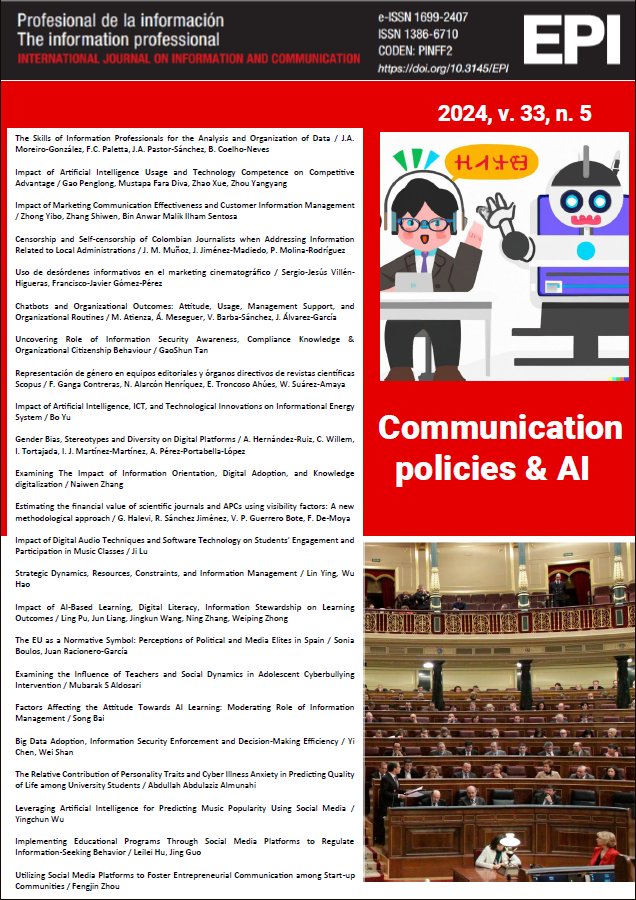Gender Bias, Stereotypes and Diversity on Digital Platforms
DOI:
https://doi.org/10.3145/epi.2024.0510Keywords:
Gender Bias, Stereotypes, Diversity, Platformization, Gender Identity, Social Media, Social Networks, Influencers, Youth, Young People, Inequalities, Digital Practices, Twitch, Discord, Tiktok, Instagram.Abstract
Social media offer young people opportunities to socialize and experiment with identity formation, but also give rise to the gendering of digital practices. Gender bias and the platformization of gender performance concur in the masculinization of platforms that are considered most valuable in marketing terms, in gender stereotypes and hate speech towards anything that does not conform to the norm. In addition, these digital platforms are spaces for self-expression and reflection with a great potential for uncovering inequalities and reverting them. This research focuses on exploring this ambivalence in digital practices and on informing on when gender boundaries are weakened and when the inequalities are strengthened. A Likert-type scale was developed with questions on the perception of masculinity or femininity in the production of six important influencers in Spain. The sample was made up of 622 young people between the ages of 14 and 30. The results show that some platforms substantiate gender stereotypes, and that the policies of platforms such as Twitch or Discord favor certain identities and ideologies that privilege the identity declarations of cisgender, white, heterosexual men. In short, the gendering of platforms creates power relationships with cultural and economic implications, and so the underlying gender biases of their content regulation policies merit in-depth study.
Downloads
Downloads
Published
How to Cite
Issue
Section
License
Copyright (c) 2025 Profesional de la información

This work is licensed under a Creative Commons Attribution 4.0 International License.
Dissemination conditions of the articles once they are published
Authors can freely disseminate their articles on websites, social networks and repositories
However, the following conditions must be respected:
- Only the editorial version should be made public. Please do not publish preprints, postprints or proofs.
- Along with this copy, a specific mention of the publication in which the text has appeared must be included, also adding a clickable link to the URL: http://www.profesionaldelainformacion.com
- Only the final editorial version should be made public. Please do not publish preprints, postprints or proofs.
- Along with that copy, a specific mention of the publication in which the text has appeared must be included, also adding a clickable link to the URL: http://revista.profesionaldelainformacion.com
Profesional de la información journal offers the articles in open access with a Creative Commons BY license.




